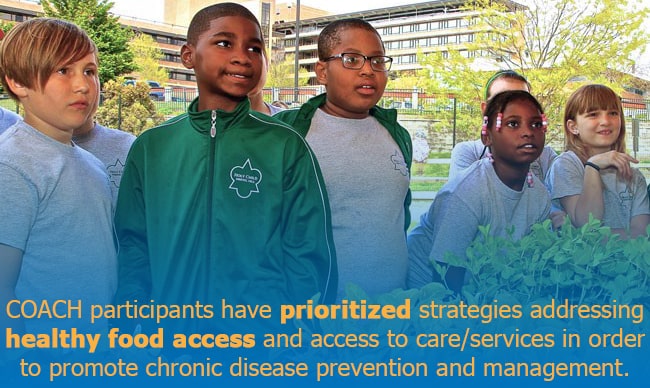Collaborative Opportunities to Advance Community Health
Facilitated by the Health Care Improvement Foundation since its September 2015 launch, COACH has provided a structure for participants to explore collaborative implementation strategies as hospitals/health systems complete the current round of community health needs assessments and implementation plans mandated by the Affordable Care Act.
COACH participants have been working toward consensus on shared strategy(ies) for collective adoption and inclusion in implementation plans that were submitted during November 2016.
Through a structured process, COACH participants have prioritized strategies addressing healthy food access and access to care/services in order to promote chronic disease prevention and management.
